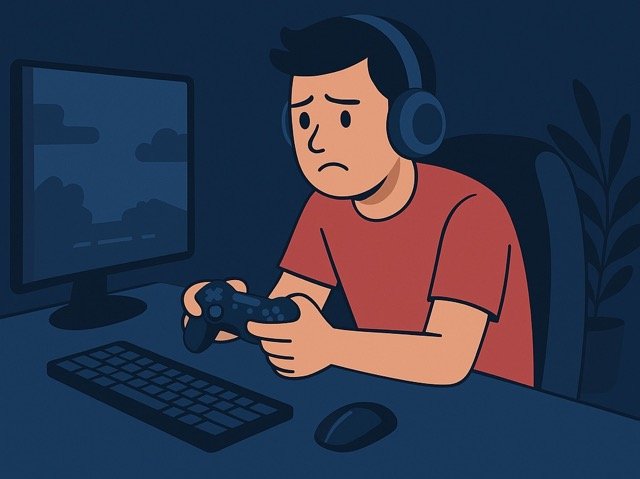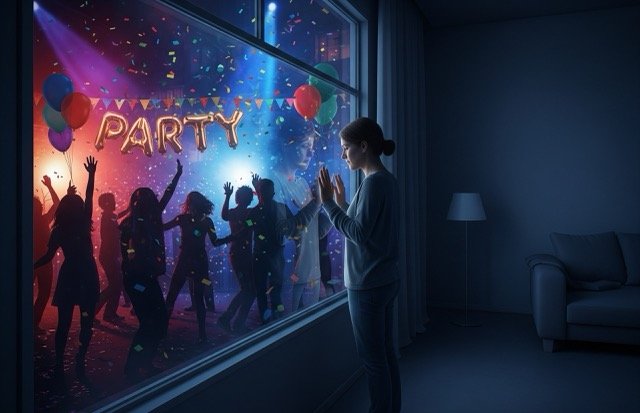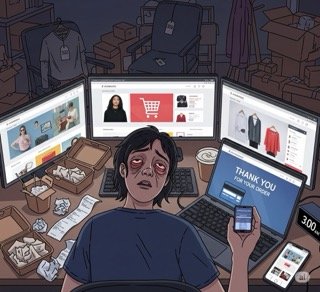
5 Best Humidifiers That Transform Your Home into a Wellness Oasis
February 26, 2026
Is Online Shopping Addiction Taking Over Your Life?
February 26, 2026Gaming has evolved from a hobby into a global phenomenon. While millions enjoy it recreationally, a growing number find themselves trapped in an invisible web they can’t escape — gaming addiction. In this article, we’ll take a deep dive into what it really is, how it affects people, and what we can do about it.
What Is Gaming Addiction?
Definition and Context
Gaming addiction, sometimes referred to as problematic gaming or gaming disorder, is a behavioral issue where an individual loses control over their gaming habits. It becomes compulsive, interfering with daily responsibilities, relationships, and mental health.
How It Differs from Casual Gaming
Playing for fun? That’s normal. The red flag goes up when someone chooses gaming over sleeping, eating, studying, or socializing — regularly and without guilt. It stops being entertainment and becomes an escape.
Why Gaming Becomes Addictive
The Psychology Behind the Screens
Games are designed to be engaging. They stimulate the brain’s dopamine system, creating feelings of pleasure and reward — similar to gambling or even certain substances.
Reward Systems in Games
From unlocking achievements to leveling up characters, rewards in games are frequent and satisfying. These micro-rewards reinforce the desire to keep playing… just one more level, right?
Social and Competitive Elements
Online games offer a sense of community. Whether it’s teaming up in multiplayer games or climbing leaderboards, the social aspect can feel more real than real life for some — especially those feeling isolated offline.
Signs and Symptoms of Gaming Addiction
Physical Symptoms
- Eye strain
- Headaches
- Poor hygiene
- Sleep disruption
Behavioral Changes
- Skipping meals or responsibilities
- Lying about gaming hours
- Neglecting hobbies or sports
- Getting irritable when asked to stop
Emotional and Mental Indicators
- Anxiety or depression
- Obsession with game-related content
- Loss of interest in everything else
- Emotional outbursts over in-game failures
Who Is at Risk?
Age Groups Most Affected
Teenagers and young adults are most vulnerable. Their brains are still developing, and they’re navigating identity, friendships, and pressure — making the digital world an easy retreat.
Personality Traits That Play a Role
People with low self-esteem, introversion, or impulsivity are more likely to fall into addictive patterns. So are those with pre-existing mental health conditions like ADHD or anxiety.
Short-Term and Long-Term Effects
Impact on Mental Health
Chronic gaming can lead to or worsen depression, anxiety, and even social phobia. There’s often a loop: you game to escape bad feelings, but the more you game, the worse you feel.
Effect on Relationships and Social Life
Time spent online replaces real-life interactions. This can lead to family conflict, social withdrawal, and a loss of communication skills over time.
Academic and Work-Related Consequences
From missing deadlines to dropping out of school or quitting jobs, the impact can be serious. Prioritizing gaming over responsibilities often leads to underachievement or career stagnation.
Gaming Disorder: A Recognized Medical Condition
WHO’s Classification and Criteria
In 2018, the World Health Organisation officially classified gaming disorder as a diagnosable condition. To qualify, the behaviour must be severe, persistent, and last for at least 12 months.
Differences from General Overuse
Playing 5 hours on a weekend doesn’t mean someone is addicted. The key factors are loss of control, continued use despite negative impact, and prioritising games above everything else.
Diagnosing Gaming Addiction
Clinical Assessment Tools
Tools like the Internet Gaming Disorder Scale and GAS-7 are used by professionals to assess behaviour. They focus on withdrawal, tolerance, and impairment in daily life.
Role of Mental Health Professionals
Psychologists or psychiatrists conduct full assessments, often considering other co-occurring conditions like depression or OCD before making a diagnosis.
Treatment and Recovery Options
Behavioral Therapy
Cognitive Behavioural Therapy (CBT) is one of the most effective approaches. It helps individuals understand the root of their behaviour and build healthier coping strategies.
Family Counseling
Addiction doesn’t just affect one person — it impacts the entire family. Involving parents or partners helps address enabling behaviors and rebuild support systems.
Support Groups and Peer Support
Connecting with others going through similar struggles creates accountability and encouragement. Think online forums, local meet-ups, or recovery apps.
Preventive Measures for Parents and Educators
Setting Healthy Limits
Use tools like screen time settings and reward charts to enforce reasonable gaming durations. More importantly, explain the “why” behind these rules.
Encouraging Offline Activities
Expose kids to sports, music, books, and nature. The more alternatives they have, the less dependent they become on the virtual world for stimulation.
Role of Game Developers
Ethical Game Design
Some developers now recognize their role in the addiction crisis. Ethical design involves reducing manipulative features like endless play or loot boxes.
Built-in Usage Controls
Time reminders, auto-logouts, and parental control dashboards are features that help players regulate themselves without outside pressure.
Digital Well-being Tools
Apps That Help Curb Screen Time
From Forest to Freedom, these apps lock you out of games or motivate breaks by planting trees or setting timers.
In-Game Time Trackers
Some games now show daily/weekly playtime stats, nudging users to reflect on their habits — a small feature with powerful potential.
Gaming vs. Other Forms of Screen Addiction
Gaming addiction overlaps with social media, binge-watching, and mobile use. But the interactive and reward-based nature of games often makes it more immersive — and therefore more addictive.
Is All Gaming Bad? (Hint: It’s Not!)
Absolutely not! Gaming can improve cognitive skills, teamwork, and reaction time. Like chocolate cake, it’s fine in moderation. The goal isn’t to ban games, but to build a healthy digital diet.
Final Thoughts
Gaming should be fun, not a prison. When used responsibly, it connects, entertains, and educates. But like anything, too much of a good thing becomes a problem. Recognizing the signs early, creating boundaries, and encouraging real-life engagement are the keys to keeping gaming in check — and life in balance.
FAQs
Can gaming addiction lead to other mental health issues?
Yes, it often coexists with or contributes to depression, anxiety, and poor self-esteem.
How many hours of gaming per day is considered unhealthy?
There’s no universal number, but 4+ hours daily with declining responsibilities or relationships is a concern.
Are all online multiplayer games more addictive than solo games?
Not always. However, online multiplayer games often have social and competitive hooks that increase playtime.
What should I do if I think my child is addicted to gaming?
Start by having an open conversation, then consult a mental health professional if the behavior persists or worsens.
Can adults be addicted to gaming too?
Absolutely. Adults with high stress or isolation can also develop addictive gaming patterns.




